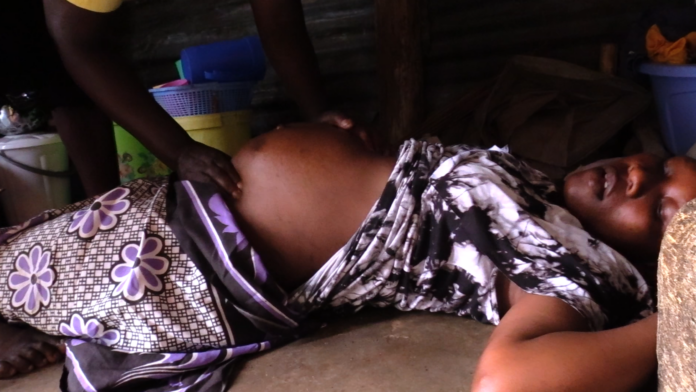By Violet Auma
Noise fills Mama Joy’s one-roomed mabati structure as she assists a woman in labor. Mama Joy, the only midwife on Aluru Island, is considered a savior, especially for women who go into labor at night. Today, Prisca Mariam, eight months and two weeks pregnant with her third child, has come to Mama Joy to deliver her baby.
Prisca, who works as a bar attendant on the island, earns just 150 Kenyan shillings daily. She cannot afford the costly boat ride to the mainland, where delivery services are available. The journey across Lake Victoria costs between 500 and 1,500 Kenyan shillings one way—a price far out of reach for most residents. Like many women on the island, Prisca depends on Mama Joy for prenatal and postnatal care, often involving traditional herbs, as formal health services remain inaccessible.
A Forgotten Island
Aluru Island, home to approximately 1,000 people, feels abandoned. Residents must rely on expensive boat rides to access healthcare and education. For many, these costs are prohibitive, forcing them to forego essential services.
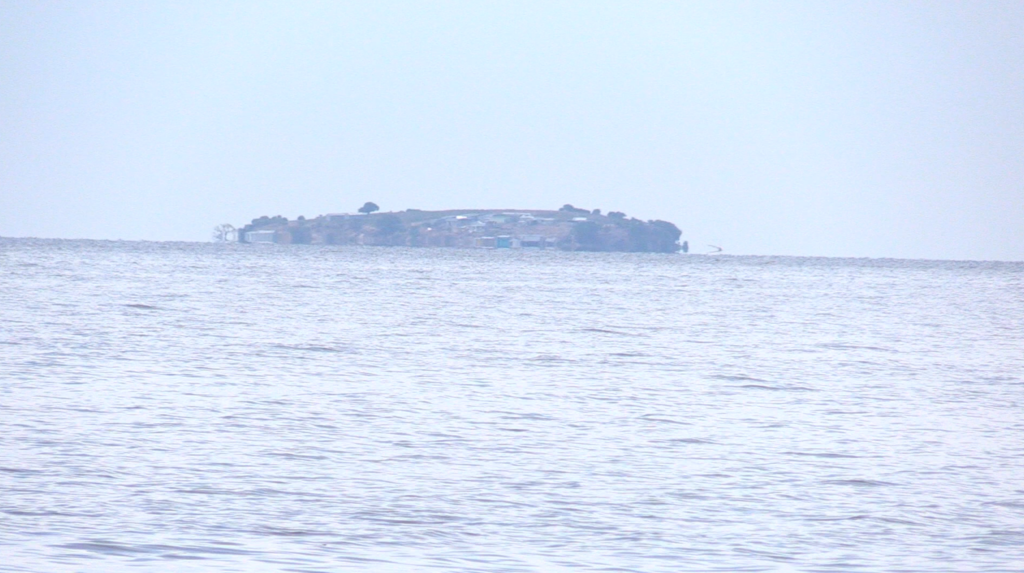
Our 40-minute speedboat ride from Okiro Beach to Aluru was accompanied by Paul Odonde, a community health promoter. Odonde visits the island once a month but says the high cost of travel limits his trips.
“A one-way speedboat ride costs 1,500–2,000 Kenyan shillings, while a passenger boat costs 500 shillings but requires a full load before departure,” he explains. These travel costs leave Aluru residents isolated from critical resources.
Mama Joy, a 48-year-old mother of 12, is a beacon of hope for Aluru Island’s residents. Beyond assisting with deliveries, she runs a retail shop and a fish mongering business.
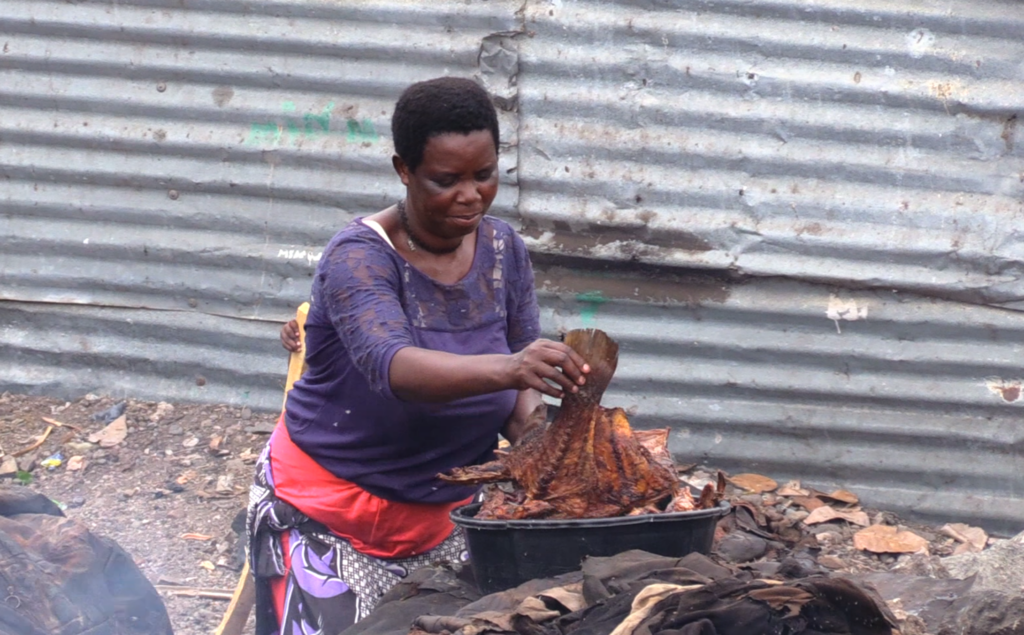
To the people of Aluru, she is more than a midwife—she is a symbol of resilience and resourcefulness.
“I have helped so many women deliver here, but I face many challenges. Sometimes I don’t have gloves while helping them, but what can I do? If a baby is ready to come, I tell the mother to push regardless,” Mama Joy says.
She learned midwifery from her mother and now plays a vital role in the community. Despite her dedication, Mama Joy recalls her lowest moment: “I helped my neighbor deliver a baby, but it was born dead. It broke my heart,” she says, her voice heavy with emotion.
Belinda Anyango, a mother of three, is one of many women who have relied on Mama Joy. “I went into labor at night. It was pitch dark, and the boats weren’t available. Even if they were, I couldn’t afford the emergency fare. Mama Joy was my only option,” Belinda recounts.
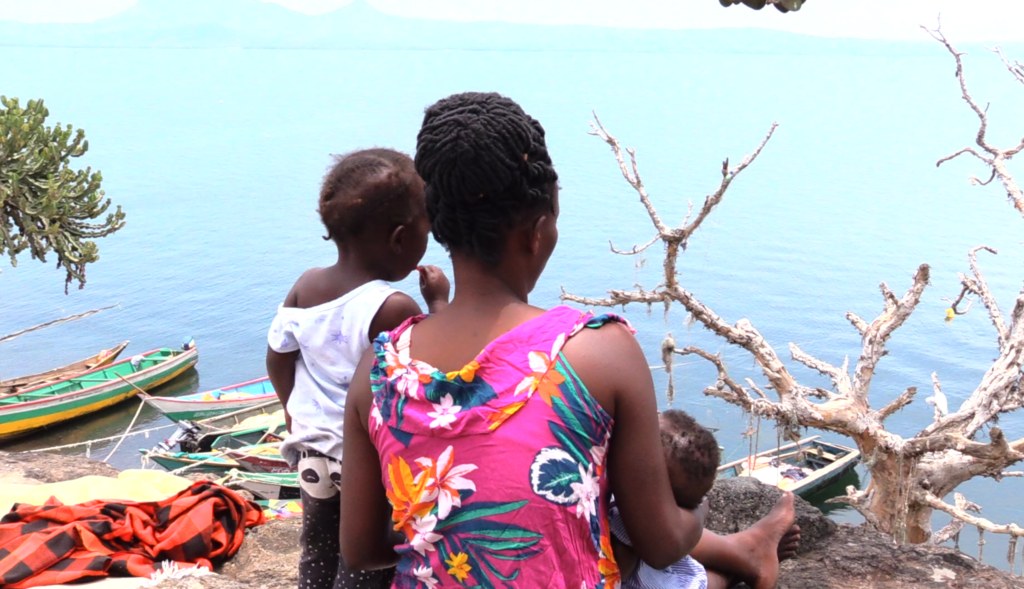
Like many women on Aluru, Belinda’s children are not fully immunized due to the lack of healthcare access. “I can’t afford three meals a day for my children. How can I afford boat rides to the mainland?” she says.
Today, Prisca Mariam is in labor and hopes for a safe delivery with Mama Joy’s help. “I’ve been coming to her for antenatal checkups. She uses special oil to rub my stomach and checks the baby’s position. I always feel better after her care,” Prisca says, smiling despite her evident exhaustion.
Family planning services are nearly nonexistent on Aluru Island. Male condoms are the only available option, leaving women vulnerable to unintended pregnancies. Belinda laments, “I didn’t plan for this child. My second baby was only eight months old. But I couldn’t afford an abortion.”
According to the United Nations Population Fund (UNFPA), access to family planning is a fundamental human right. The lack of contraceptive options contributes to Kenya’s high rates of unintended pregnancies, with nearly half resulting in unsafe abortions.
 Joseph Okidi, Reproductive Health Coordinator, Migori County
Joseph Okidi, Reproductive Health Coordinator, Migori County
Migori County’s reproductive health coordinator, Joseph Okidi, recognizes the challenges. He highlights efforts such as outreach programs and maternity days but admits that 8% of mothers still deliver at home, with three maternal deaths reported monthly. The preferred three-year contraceptive implant has been unavailable for over three years, exacerbating the issue.
“We have mapped out and initiated outreach programs to serve the community, but we acknowledge neglecting Aluru in these efforts. We will plan an outreach initiative for Aluru and, if possible, work towards establishing a health center there,” Okidi said.
Aluru residents feel abandoned despite participating in national and county elections. They plead for a health facility, patrol boats, schools, and toilets to improve their quality of life.
Tobias Okello, chairman of the Beach Management Unit and a fisherman, praises Mama Joy’s efforts. “Mama Joy is a blessing. She helped my wife deliver when I was away fishing. Her work is invaluable,” he says.
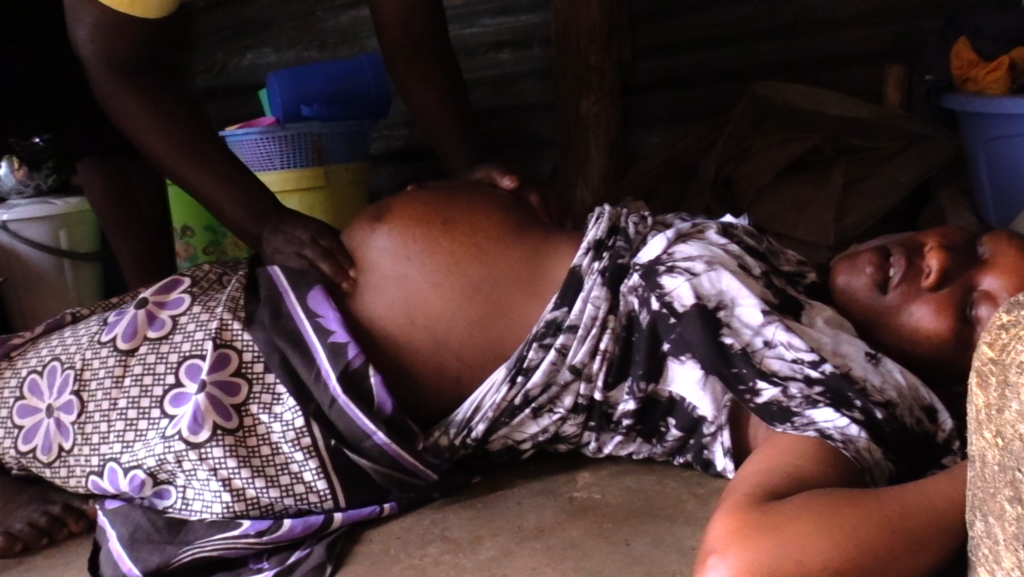
Okello adds, “The only thing the government gives us is condoms, but we need much more. We need affordable transport, latrines, schools, and a health facility.”
Mama Joy’s tireless work underscores the resilience of Aluru’s community. However, systemic intervention is urgently needed to address glaring disparities. The government’s commitment to Universal Health Coverage (UHC) and constitutional guarantees of the right to health remain unfulfilled for Aluru Island’s residents.
Until the government steps in, Mama Joy remains the lifeline for this neglected island, offering hope and care to those who have no other options.



